
Dame Ethel Mary Smyth was an English composer and a member of the women's suffrage movement. Her compositions include songs, works for piano, chamber music, orchestral works, choral works and operas.
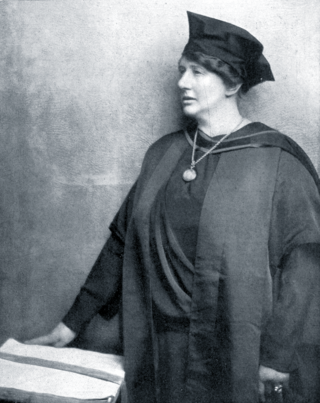
Lilian Mary Baylis CH was an English theatrical producer and manager. She managed the Old Vic and Sadler's Wells theatres in London and ran an opera company, which became the English National Opera (ENO); a theatre company, which evolved into the English National Theatre; and a ballet company, which eventually became The Royal Ballet.
Ronald Crichton was a music critic for the Financial Times in the 1960s and 1970s. He was a scion of the Earls of Erne. In his Times obituary he was described as "one of the last of the school of those cultured mandarins who were able to write and talk about all matters concerning the arts."
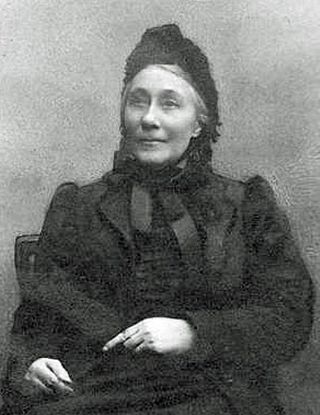
Emma Cons was a British social reformer, strongly committed to women's suffrage. She also campaigned for educational opportunities for the working class, including cheap tickets to Shakespearean drama at the Old Vic Theatre, which she opened in 1880, later managed by her niece, Lilian Baylis.
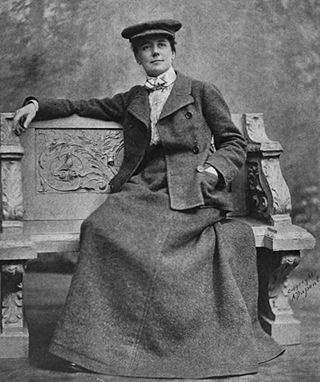
The Boatswain's Mate is an opera in one act written by British composer and suffragette Ethel Smyth in 1913–14 set to her own libretto, which was based on a story of the same name by W. W. Jacobs.

The Wreckers is an opera in three acts, composed by Dame Ethel Smyth to a libretto in French by Henry Brewster. After spending considerable energy in trying to get the work performed in French, the first performance took place in a German translation by John Bernhoff, under the title of Strandrecht, at the Neues Theater, Leipzig on 11 November 1906. Smyth persisted in her attempts to see it staged elsewhere, but it was not until the conductor Thomas Beecham championed the work that a complete, staged performance was achieved in England in 1909 with funding support from her friend Mary Dodge.
Rae Woodland was a British soprano who studied with Roy Henderson. Her debut was as Queen of the Night at Sadlers Wells. She sang in many European festivals, and debuted at Covent Garden in La sonnambula with Joan Sutherland and Luciano Pavarotti. She was first asked to sing for Benjamin Britten on the English Opera Group's tour of Russia, and played many roles for him subsequently. She also created roles for Gottfried von Einem, Nicholas Maw and Sir Arthur Bliss, and made many live broadcasts for the BBC, from the RAH Proms to Friday Night is Music Night. She retired from the opera stage in 1984. She then taught singing at the Royal Academy of Music in London, and at the Britten-Pears School in Snape Maltings on the invitation of Sir Peter Pears.
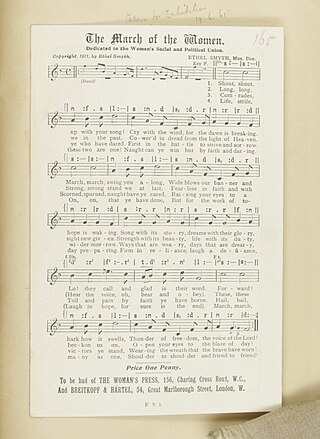
"The March of the Women" is a song composed by Ethel Smyth in 1910, to words by Cicely Hamilton. It became the official anthem of the Women's Social and Political Union (WSPU) and more widely the anthem of the women's suffrage movement throughout the United Kingdom and elsewhere. Activists sang it not only at rallies but also in prison while they were on hunger strike. Smyth produced a number of different arrangements of the work.
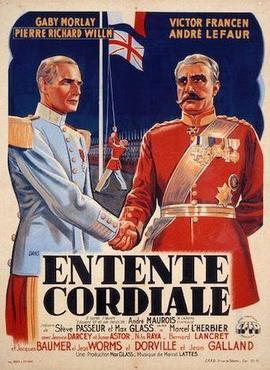
Entente cordiale is a 1939 French drama film directed by Marcel L'Herbier and starring Gaby Morlay, Victor Francen and Pierre Richard-Willm. The film depicts events between the Fashoda crisis in 1898 and the 1904 signing of the Entente Cordiale creating an alliance between Britain and France and ending their historic rivalry. It was based on the book King Edward VII and His Times by André Maurois. It was made with an eye to its propaganda value, following the Munich Agreement of September 1938 and in anticipation of the outbreak of a Second World War which would test the bonds between Britain and France in a conflict with Nazi Germany.
Kathleen Dale née Richards was an English composer, pianist, musicologist and translator. She used the name Kathleen Richards for her compositions, but from 1921 used her married name Kathleen Dale for recitals, broadcasts and authorship until the end of her life.
Charles Montague Corri was an English musician, conductor and arranger. He spent most of his career working for Lilian Baylis, as her musical director at the Old Vic Theatre, and then at Sadler's Wells Opera.
Earl Carpenter is an English musical theatre actor and singer, recognized chiefly for his work in London’s West End. He is known for his performances as Inspector Javert in the stage musical Les Misérables and as the title character in The Phantom of the Opera, both roles he has played on and off for two decades. He is widely known for his rich, deep baritone singing voice.

Frederick Baring Ranalow was an Irish baritone who was distinguished in opera, oratorio, and musical theatre, but whose name is now principally associated with the role of Captain Macheath in the ballad opera The Beggar's Opera, which he sang close to 1,500 times. He was also a minor film actor and writer of songs.

Herbert Heyner was a noted English baritone. Heyner appeared in a handful of operas, and a number of broadcast operas, but his stage appearances were predominantly in oratorio and songs. He sang in some notable performances of Sir Edward Elgar's oratorios under the composer's baton. He sang in Britain, France, Germany, the United States and Canada, and he sang at The Proms 59 times between 1909 and 1937, in songs and operatic arias.

Fantasio is an opera in two acts composed by Ethel Smyth. The German-language libretto was written by Smyth and Henry Bennet Brewster. Described in the libretto as a phantastische Comödie, it was based on Alfred de Musset's 1834 play of the same name. The opera premiered at the Deutsches Nationaltheater in Weimar on 24 May 1898.
The Mass in D by Ethel Smyth is a setting of the mass ordinary for vocal soloists, choir and orchestra, first performed in 1893.
This is a summary of 1926 in music in the United Kingdom.
The Vic-Wells Association (VWA) is an organisation based in London that was founded in 1922 and which supports the work of the Old Vic and Sadler's Wells theatres.

Caroline Gertrude Hatchard was a British lyric soprano, musical theatre and opera singer of the 20th-century who was the first English-born and trained soprano to be engaged by the Royal Opera House in Covent Garden where she played Sophie in the British premiere of Strauss's Der Rosenkavalier on 29 January 1913 with Thomas Beecham conducting.










